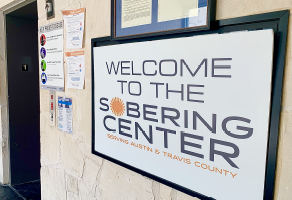Underage and excessive drinking are significant public health issues plaguing the college student populations. In the United States, drugs and alcohol are routinely accepted as a normal part of college culture, according to 2016 data from the National Institute on Drug Abuse (NIDA). This unfortunate trend can lead to many unintended outcomes stemming from clouded judgment and the increase of risky behavior. The groups at risk for alcohol-related incidents tend to choose responsible parties who have consumed at least some alcohol. When planning a social night that involves drinking, it is increasingly important to know your options of how to remain safe, especially when not sober.
Risks Involved With Public Intoxication and/or Binge Drinking
Alcohol Consumption excessive or not can lead to:
- Unintentional Injuries
- Car crashes, falls, burns, drowning, etc.
- Intentional Injuries
- Re-harm injuries, sexual assault, domestic violence, etc.
- Unintended Pregnancy
- Alcohol Poisoning
- Sexually transmitted Diseases
- Medical Consequences
- Cardiovascular, liver, diabetes diseases, etc.
Common Misconceptions of Sobering Up
The following methods are not truly effective when attempting to sober up.
- Drinking Coffee or Water
- Taking a cold bath or shower
- Sleeping it off
- Walking it off
- Eat a big meal
- Vomiting
Reality of Alcohol Consumption and Sobering Up
On average, one’s Blood Alcohol Concentration drops at the rate of .015-.017 every hour. Additionally, taking the body about 1-2 hours to process the alcohol in one drink. The misconception practices listed above do not speed up the liver’s ability to break down alcohol, time is the only effective method to sober up.
Responsible Party
Time is of the essence, especially when your safety is at risk. Many times students turn to one another to be the sober person, entrusting their health and safety with someone who may not be equipped to take on the responsibility, especially if it entails looking after more than one person.
Students have reported escorting friends to their dorms and returning to the festivities, thinking that this means their friend is safe. However, it is what could happen behind closed doors that is also of concern. Without supervision when intoxicated, one runs the risk of waking up confused and stumbling around their dorm or into the street, and even choking on his or her vomit and dying from asphyxiation. While designating at least one sober friend is harm reduction, the intent of caring for someone may not always end positively. When taking on the responsibility for another, consider if you are in the right capacity to watch over them and what can be gained and lost from a negative outcome.
Know Your Options
The Austin-Travis Sobering Center is the safe and reliable option available to our Central Texas community. If you or someone you know is publicly intoxicated and needs assistance, call the 911 operator and ask to be taken to the Sobering Center. When coming to the Center there is:
- A safe place to recover from acute intoxication
- No jail or emergency room
- No citations, fines, or medical bills
- No cost for Sobering Center services
- Complete confidentiality
- Connection to community resources and other services
- Assistance with coordinating transportation home
Your health and safety and that of others should never be at risk. Drink responsibly and know your options!


